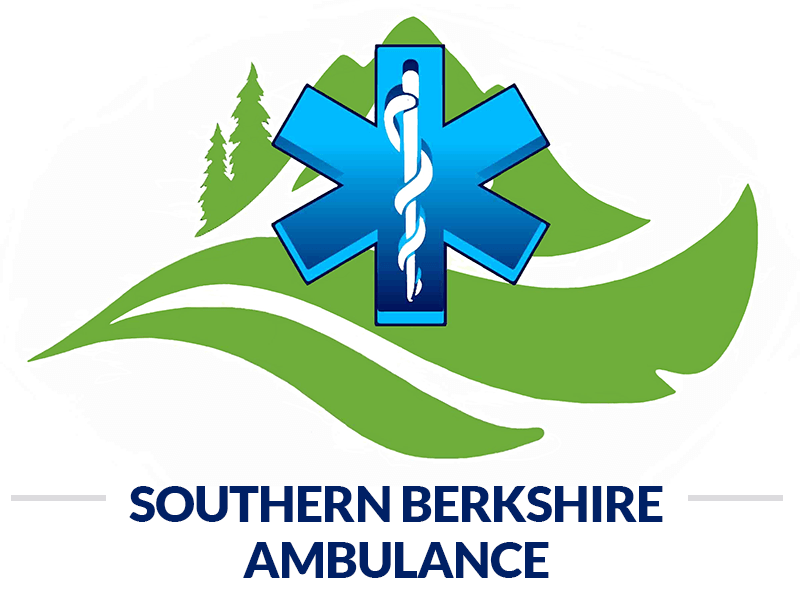Frequently Asked Billing and Claims Questions
1. What is a BLS ambulance?
BLS means Basic Life Support. A BLS ambulance is staffed and equipped to monitor the patient's condition and recognize changes and provide basic life support measures such as oxygen and spinal immobilization. It is staffed by two EMTs (Emergency Medical Technicians.)
2. What is an ALS ambulance?
ALS means Advanced Life Support. An ALS ambulance is staffed and equipped to monitor the patient's condition, recognize changes and provide advanced medical intervention when necessary to support life. An ALS ambulance is typically staffed by an EMT and an EMT-Paramedic.
3. I have insurance. Why did I receive a bill?
There may be several reasons and there should be information on the bill that tells you what the exact situation is and what you need to do. If no portion of the claim has been paid, it is most likely that SBAS does not have your correct insurance information. Call the number on the invoice and provide that information so that our outsourced billing service can file the claim. If a partial balance is due on the claim, it most likely means that you owe us a deductible or a co-pay, or that some portion of the ambulance trip is not covered by your insurance (this includes Medicare) If you have secondary insurance, our billing company can file with them if you will provide the information. If not, the balance due is your responsibility.
4. Who should I call if there is an error on my bill?
It is our goal to assure that all invoices and claims are 100% accurate. If we have failed in this regard, please call 413-528-3632. Have your invoice handy and we will work with you to clear up any questions. You may be directed to our outsourced billing service for additional information.
5. Why won't you discuss my claim with anyone but me?
The federal government has laws and regulations in place that are designed to protect your privacy (you will hear them referred to as the HIPAA laws) These laws require us to be very careful about the medical information (called Protected Health Information or PHI) we share, and they consider the information about your ambulance trip (including the invoice) to be PHI. The questions we ask and the forms that must be filled out if we are to share your information with anyone besides you are required by law and are designed to protect you and the privacy of your medical records. Click here for more information regarding HIPAA.
6. What is an emergency?
"Emergency" is defined in several ways by several different insurance companies. Medicare defines an Emergency as an Emergency Response and recognizes the primary expense of an emergency as the cost of being ready and available to respond. SBAS will apply the appropriate emergency definition based on the type of claim we are filing. For a detailed explanation of how these definitions might have applied to your ambulance transport, please contact our office at 413-528-3632. You may be directed to our outsourced billing service for additional information.
7. What is a Medicare covered service?
Medicare covers ambulance service only under very specific conditions. First, the destination must be a covered destination. This is usually a hospital or other medical facility. Second, the reason for the transport must be considered. Is there a service at the destination hospital that isn't available at the place where you started out? (Transport from hospital to hospital because of where your doctor is located, is rarely covered.) Third, transport by ambulance must be medically necessary. This means the patient must be in such a condition that he or she could not be transported by any other means. When the conditions for the ambulance transport meet all necessary criteria, the ambulance transport may be a Medicare covered service. The determination of a Medicare covered service is made on a case-by-case basis at the time we review the trip and file the claim. What we have given here is a very basic explanation. For specific questions about whether or not any trip is a covered service, please contact our office at 413-528-3632. You may be directed to our outsourced billing service for additional information.
Frequently Asked Ambulance Access Questions
1. How do I get an Ambulance?
For all emergencies (or what you may consider an emergency), Southern Berkshire Volunteer Ambulance Squad strongly advocates dialing 9-1-1. For all non-emergency or transport requests, please dial 413-528-3632.
2. Do I get charged for an ambulance even if I wasn't the one who summoned the ambulance?
In most cases, SBAS only charges for transporting a patient. The service is provided and charged to each individual patient no matter who initiates the call.
3. Do I get charged for an ambulance even if I refuse transport?
If service is provided and the patient is not transported to a medical facility, no charges are billed.
4. What information do I give the dispatcher?
When you call 9-1-1, you will be asked the location of the incident. Try to give the street address, highway intersection, or mile marker number if known. They will also ask for some details about the condition of the patient or patients, and the nature of the emergency. This information will be sent to the ambulance crew while they are traveling to you.
5. Why should I call an ambulance?
Reasons to Dial 9-1-1:
- CHEST PAIN
- ROAD/TRAFFIC ACCIDENTS
- SERIOUS FALLS
- INDUSTRIAL/AGRICULTURAL ACCIDENTS
- DIFFICULTY IN BREATHING
- LOSS OF CONSCIOUSNESS
- SEVERE LOSS OF BLOOD
- CHOKING FITTING/CONVULSIONS
- DROWNING
- SEVERE ALLERGIC REACTIONS
WHEN IN DOUBT CALL 9-1-1!
